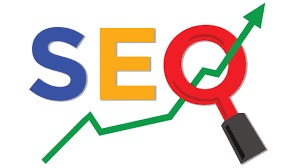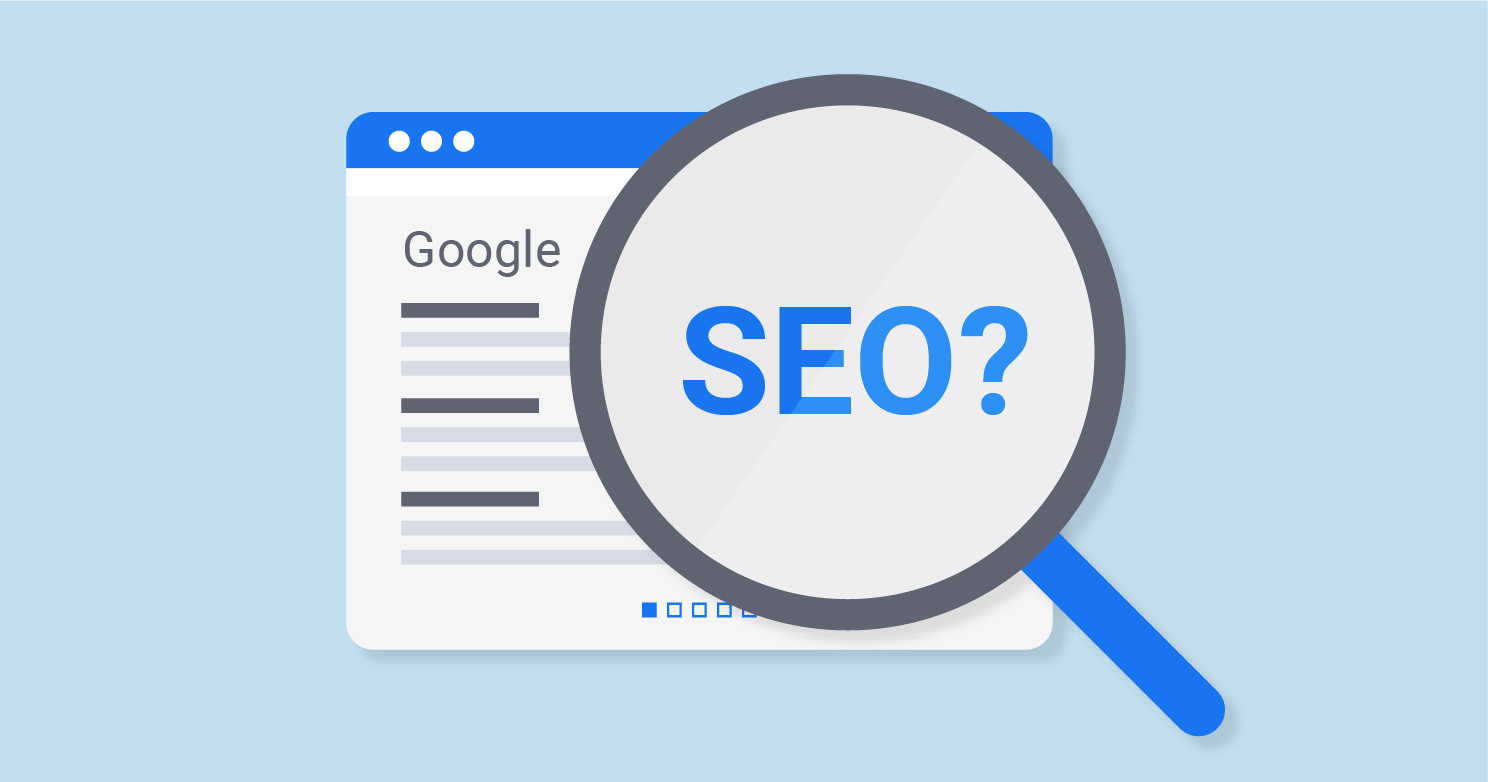
Embarking on the journey of Search Engine Optimization (SEO) for beginners opens doors to a world where the digital landscape intersects with businesssuccess. SEO isn't just a buzzword; it's a powerful tool that can significantly enhance your website's visibility, drawing in more traffic, leads, customers, and, ultimately, revenue.
In a realm where billions of daily Google searches occur, understanding the fundamentals of SEO becomes paramount. According to Semrush's State of Search 2023report, a staggering 45.1% of desktop users click on organic search results.
Simply having a website is no longer enough; the key lies in optimizing it strategically. Whether you're contemplating hiring an SEO specialist, partnering with a marketing agency, or diving into the process yourself, comprehending the types of SEO is your starting point.
This journey will not only illuminate the path to effective SEO strategies but also shed light on how SEO permeates various industries, from healthcare to e-commerce, offering diverse career paths with unique requirements and potential salary ranges. Welcome to the realm of "SEO for Beginners," where the basics pave the way for digital success.
What Is SEO And Why Is It Important?
SEO, or Search Engine Optimization, comprises processes designed to enhance a website's visibility on search engines, such as Google, ultimately attracting more organic traffic. The core objective of SEO is to address user search needs through the creation of relevant, high-quality content and the optimization of a website's technical configuration and link popularity.
This involves strategic placement of relevant keywords in titles, meta descriptions, and headlines (H1), as well as employing descriptive URLs with keywords. Overall, SEO seeks to improve a website's findability, relevance, and popularity, aligning with user search queries and optimizing its ranking on search engine results pages.
However, knowing that SEO is "the process of affecting the visibility of a website or a web page in a search engine's unpaid results" doesn't help you answer essential questions for your business and website.
- How do you "optimize" your site or the site of your business for search engines?
- How can you make your site more visible in organic search results so that your information is easy to find?
- How do you figure out how long SEO should take?
- How can you tell the difference between "good" SEO advice and "bad" or damaging SEO advice
For you as a business owner or worker, what's interesting is how you can use SEO to get your business more relevant traffic, leads, sales, and eventually money and profit. That's what this book is all about.
What Are The Types Of SEO?
Many different methods and techniques can be used for SEO. 92.96% of all traffic in the world comes from Google Search, Google Images, and YouTube. Let's look at these types in more detail. There are three main types of SEO.
On-Page SEO
On-page SEO refers to the optimization techniques applied directly to a web page to improve its visibility and ranking in search engine results. This includes optimizing content with relevant keywords, creating descriptive and engaging meta titles and descriptions, using header tags for structure, improving URL structure, enhancing user experience through responsive design and fast loading times, and ensuring proper internal linking.
On-page SEO helps search engines understand the page's content and relevance to user queries, ultimately increasing its chances of ranking higher and attracting organic traffic. It plays a crucial role in a comprehensive SEO strategy aimed at improving a website's search engine rankings.
- Place target keywords strategically
- Write keyword-rich title tags
- Optimize URLs
- Add internal links
- Write SEO-friendly meta descriptions
- Include and optimize images
- Use headings and subheadings to structure your page
- Add external links
Off-Page SEO
The term "off-page SEO" means just what it sounds like. Things that happen outside of your website and in other parts of the Internet affect how well it ranks. That's not all there is to off-page SEO. It might also look like.
- Take care of your social media accounts.
- Reaching out and doing internet PR.
- Making videos for other sites, like YouTube.
- In charge of reviews.
- Watch out for backlinks that are spammy and could hurt your SEO.
Technical SEO
Technical SEO is all about the things on the back end of your site that affect how easy it is for search engines to crawl and how fast it loads. Search engines and people can easily understand and move around on your site if you do good technical SEO.
On the other hand, pages that take a long time to load, pictures that don't work, or navigation that is hard to use are bad for users and are called "bad technical SEO." Some parts of technical SEO are.
- Doing a check of the technical site.
- Finding and fixing material that is already there.
- Telling Google how to crawl your site with the robots.txt file.
- Having an easy-to-read website.
- Code and file size optimization to help pages load quickly.
- Taking care of a crawl budget.
- Moving a website.
- Making the site work on phones.
Measuring SEO Success
Take some time to gather some benchmark data before you use this SEO guide. Also, learn how to keep track of your progress. Take a look at some of the most essential SEO indicators.
Organic Search Traffic
The number of people who find your site through organic search results is called "organic search traffic." Using Google Analytics 4 (GA4) is the best way to find out how much direct traffic you have.
Your content is probably hitting home with people if your organic traffic is going up. This also means that your keywords need to be more competitive and that the links you're building are working. SEO brings in 53.3% of all page visitors.
If your site's traffic is going down, it could be because you need to use more competitive keywords or have technical SEO problems. It may take a little while for SEO to work on your page. Most of the time, SEO takes at least four months to work.
- Content resonates; keywords and link-building are effective.
- Non-competitive keywords, technical SEO issues.
- SEO results take at least four months.
- Monitor organic traffic for SEO effectiveness.
- Adjust keywords and address technical issues to maintain or boost website traffic.
Keyword Rankings
How well your keywords rank shows how well your SEO approach is working. You want to be number one or as close to number one as possible. That way, more people will see your result and click on it.
Search Console lets you see where your site stands on Google. Make sure all the boxes at the top of "Performance"> "Search results" are checked. After that, go to the "Queries" table and scroll down. To see up to 1,000 of the best keywords for your site. It lets you do that.
- Keep track of all the keywords you want to rank for, even if you still need to get them.
- Get alerts when your ranking changes in a big way.
- Check to see where your site stands in all of the SERPs like the "People also ask" box.
- See how visible you are compared to your competition.
- Helpful information, like keyword numbers and difficulty scores, can be quickly accessed.
Engagement Rate And Bounce Rate
In GA4, the engagement rate is the number of sessions (website visits).
- Keep going for more than 10 seconds.
- Add an event for change and.
- At least two screen or page views should be used.
On the other hand, the bounce rate shows the number of sessions that users did not stay on. If your bounce rate is high, your information isn't relevant to what people are looking for. To better serve your site visitors, you should do more keyword studies or cut down on the number of words in your content.
Conversions
In GA4, you can set up conversion events to keep track of when users do what you want them to do, like place an order or fill out a form. But it might be better to take a look at it.
- Rate of session conversion. The share of sessions (website views) that lead to conversions.
- Rate of user growth. The share of new website visitors who have purchased at least once.
You should check to see if you need to turn visitors into leads and customers.
- The conversion you want is a fair one, like a new visitor signing up for your newsletter.
- You're going after Google keywords that people who might buy from you use.
- People will want to stay on your site because of its UX.
10 SEO Tools For Beginners
Pagespeed Insights From Google
You can enter a URL, and this tool will check how fast and well that URL works on both PC and mobile. Then, it gives your site a score between 0 and 100 based on how well it works. It tells you how long it takes for the site to load based on different factors and also offers ways to make it faster.
Ahrefs Webmaster Tools
If you sign up for Ahrefs Webmaster Tools and prove your website, you can check it for more than 100 technical SEO problems. You can also get ideas on how to fix them from the tool.
After an audit, it also tells you where you can improve your internal linking, which helps search engines rank your site higher.
This tool also shows you who is referring to your site and where it ranks for organic keywords.
Answer The Public
Answer the Public will give you a long list of possible long-tail keywords along with frequently asked questions after you enter any relevant term.
Google Analytics
Google tracking is one of the best free tracking tools out there. It keeps track of all the traffic to your website, including where it comes from, which page gets it, and so on. It's not just for SEO, but it's still an excellent way to see how much traffic you're getting from search engines.
Google Search Console
You can see what the most popular search engine thinks of your site with Google Search Console. It lets you see important SEO data like clicks, impressions, and average ranking position, send sitemaps, and more. You can use it to check for and fix technical problems on your website.
Google Ads Keyword Planner
When you enter a keyword or group of keywords into the tool, Google Keyword Planner will give you a lot of helpful information to help you plan your keyword strategy. This includes the monthly search volume, the competition, and even terms you might have yet to think of.
SERP Snippet Optimization Tool
Before you even post your page, look at how your meta title and description will show up in search results. It works on both computers and phones. Look for problems with reduction and fix them right away.
Google Trends
Google Trends shows the most-searched terms over time, which can help you find out how search traffic changes with the seasons. You can compare several terms to see how popular they have become over time.
Moz Local Listing Score
Moz looks at information from over ten sites, such as Google, Yelp, and Facebook, to give your physical store a score based on how it appears online. The results come with fixes that can be used to fix ads that aren't consistent or are missing information.
Yoast SEO
Yoast SEO will tell you how to change your blog post so that it is better for search engines based on the main keyword you enter.
Common Industries That Use SEO
SEO can help two types of businesses: brick-and-mortar stores that want to bring in local customers and online stores that want to get more people interested in their goods or services. Signing up for a Google My Business account for your business can help you get more customers.
Healthcare Providers
People who get health care from businesses can live better, happier lives. The US Bureau of Labor Statistics says that jobs in healthcare will grow by 13% over the next ten years, which is much faster than the average for all jobs in the country. This means that there will be almost two million job openings every year for the next ten years.
Restaurants, Bars, And Entertainment Venues
Jobs in places like restaurants, bars, and entertainment venues that serve food and drinks are projected to grow by 9 percent faster than average over the next ten years. For the next ten years, there will be almost a million job openings every year for people who work in restaurants.
As a general rule, people who work as cooks, waitpersons, servers, or bus people don't need any special training, and they usually only work part-time.
Real Estate
People who work in real estate help people buy, sell, rent, and move into homes, flats, and condos. In the next ten years, the industry should grow by 5% across the country, though markets are better in some areas than others. This rate of growth is the same as the national average, and it means that about 55,000 jobs are available.
Legal Services
Lawyers help people in civil and criminal court, write legal papers, and give legal advice. Some only do one type of law, like real estate or family law, while others do a lot of different types of law. Before they can work as lawyers, they have to go to law school and pass the state bar test.
Lawyers make an average of $150,130 a year. In the United States, there were more than 600,000 lawyers. Most of them worked in legal services, but some worked for the federal, state, and local governments.
Professional Services
There are a lot of businesses that offer professional services, but the most popular ones are bookkeepers, financial advisors, and accountants. These people give advice and help people plan for retirement and handle their money.
To be a financial advisor, you need at least a bachelor's degree, and most of them have a master's. By 2031, the field should have about 30,000 job openings and grow by 15%. The average salary for a Financial Advisor is $94,170 per year.
FAQs About SEO
How Can A Beginner Learn SEO?
Start with online courses, tutorials, and reputable blogs to grasp fundamental concepts, and then practice hands-on by optimizing your website.
How Do I Start Doing SEO?
Begin by conducting keyword research, optimizing on-page elements (title tags, meta descriptions), and building a solid understanding of both on-page and off-page SEO techniques.
What Are SEO Basics?
SEO basics include keyword research, on-page optimization, quality content creation, building backlinks, and ensuring technical aspects like site speed and mobile-friendliness.
What Is The First Thing To Do In SEO?
Kickstart your SEO journey by conducting thorough keyword research to identify relevant terms for your content and understanding your target audience's search behavior.
A Quick Recap About Seo For Beginners
This comprehensive guide unravels the nuances of SEO for beginners, underscoring its pivotal role in bolstering website visibility and steering relevant traffic for business triumph. By delving into the trifecta of On-Page, Off-Page, and Technical SEO, the article equips readers with insights into optimizing content, fortifying authority, and ensuring seamless user experiences.
Additional dimensions like Image SEO and Local SEO are explored, presenting a holistic approach to diverse online strategies. The article navigates the labyrinth of SEO success, elucidating key performance indicators such as organic search traffic, keyword rankings, engagement rates, bounce rates, and conversions.
By incorporating essential SEO tools, businesses can pragmatically refine their online presence. Acknowledging the varied industries benefiting from SEO, from healthcare and restaurants to real estate and professional services, the guide offers actionable insights for sustained growth in the digital realm. In essence, it serves as an invaluable resource, providing a roadmap for leveraging SEO to achieve specific business objectives in today's competitive landscape.




